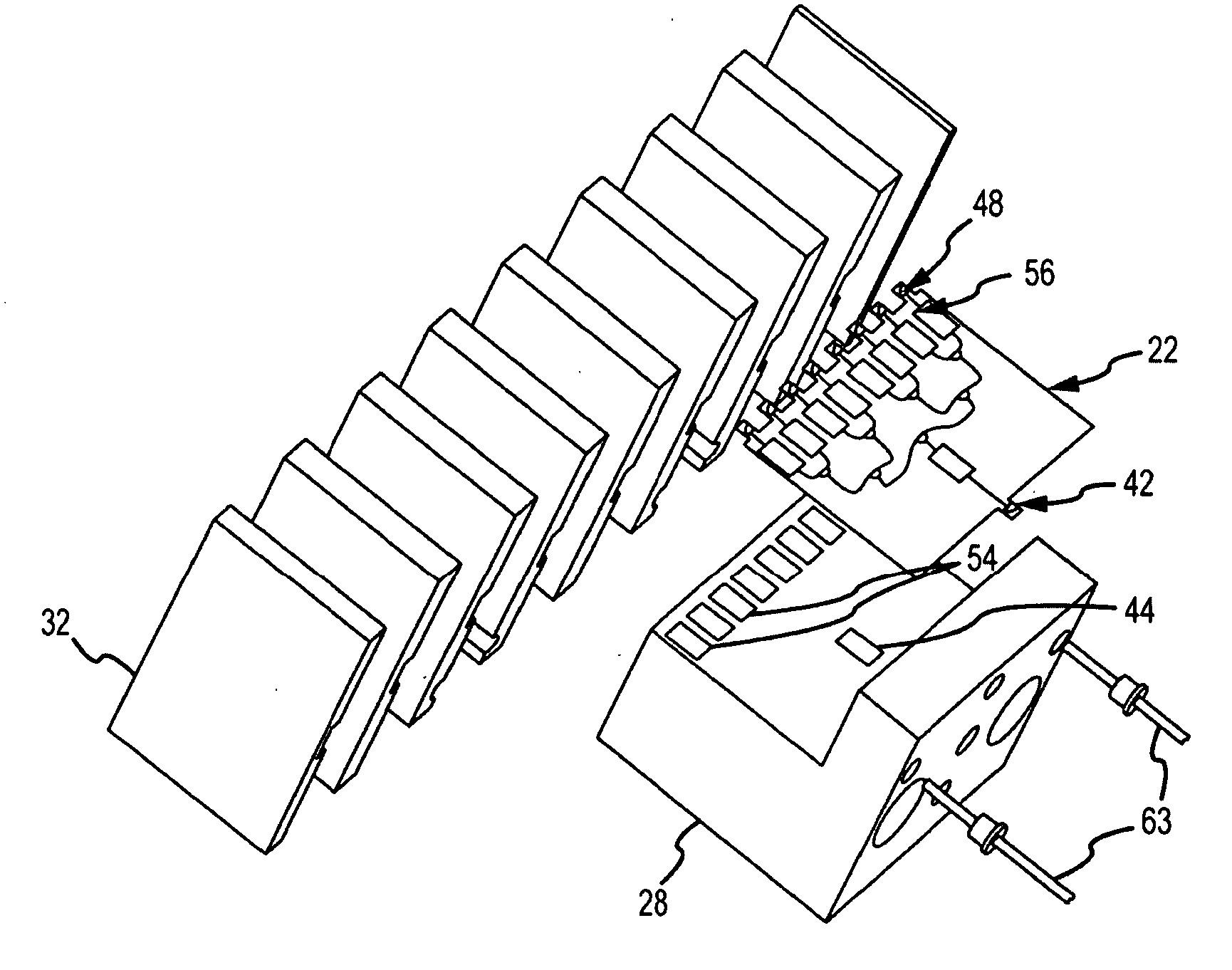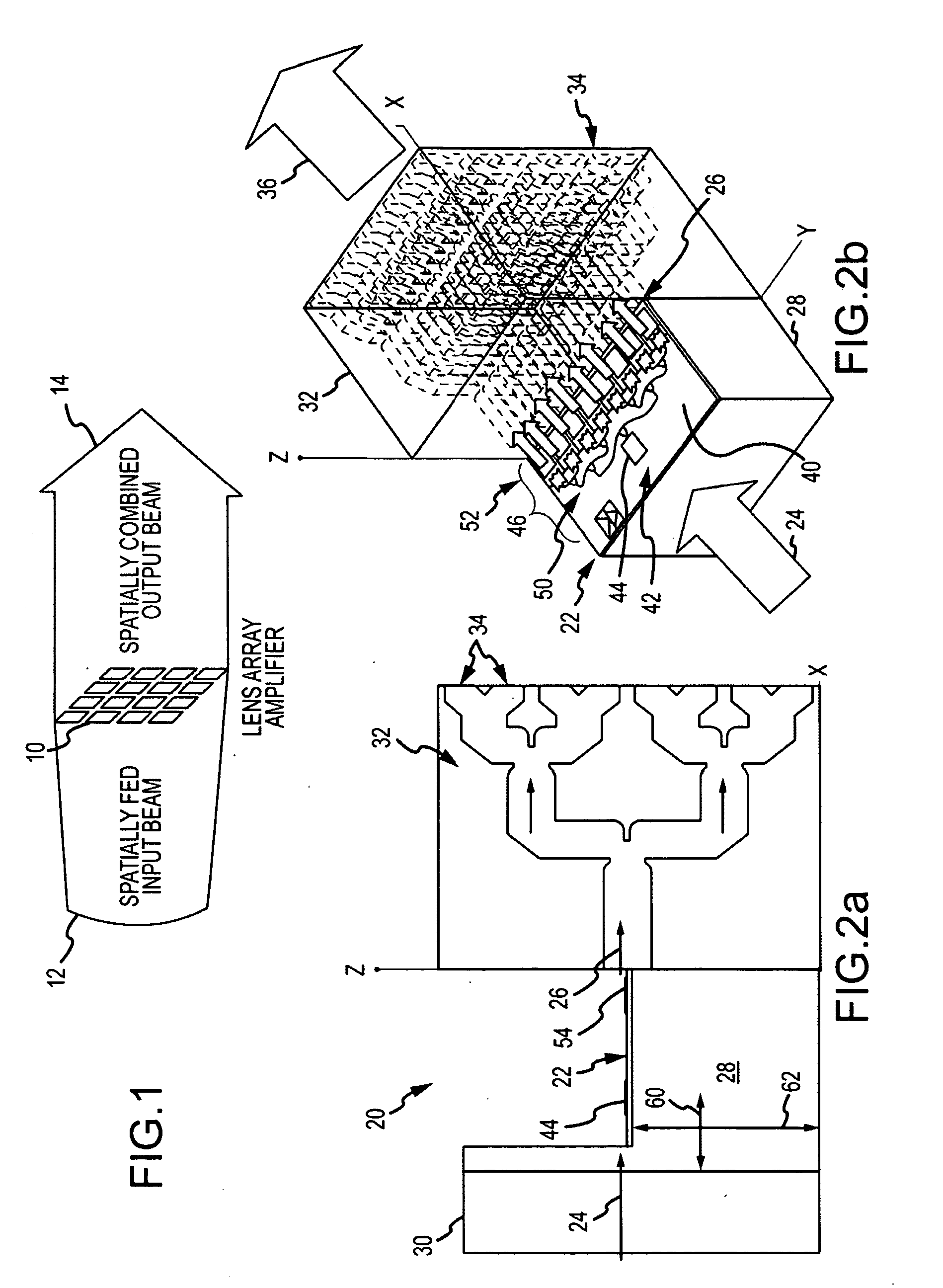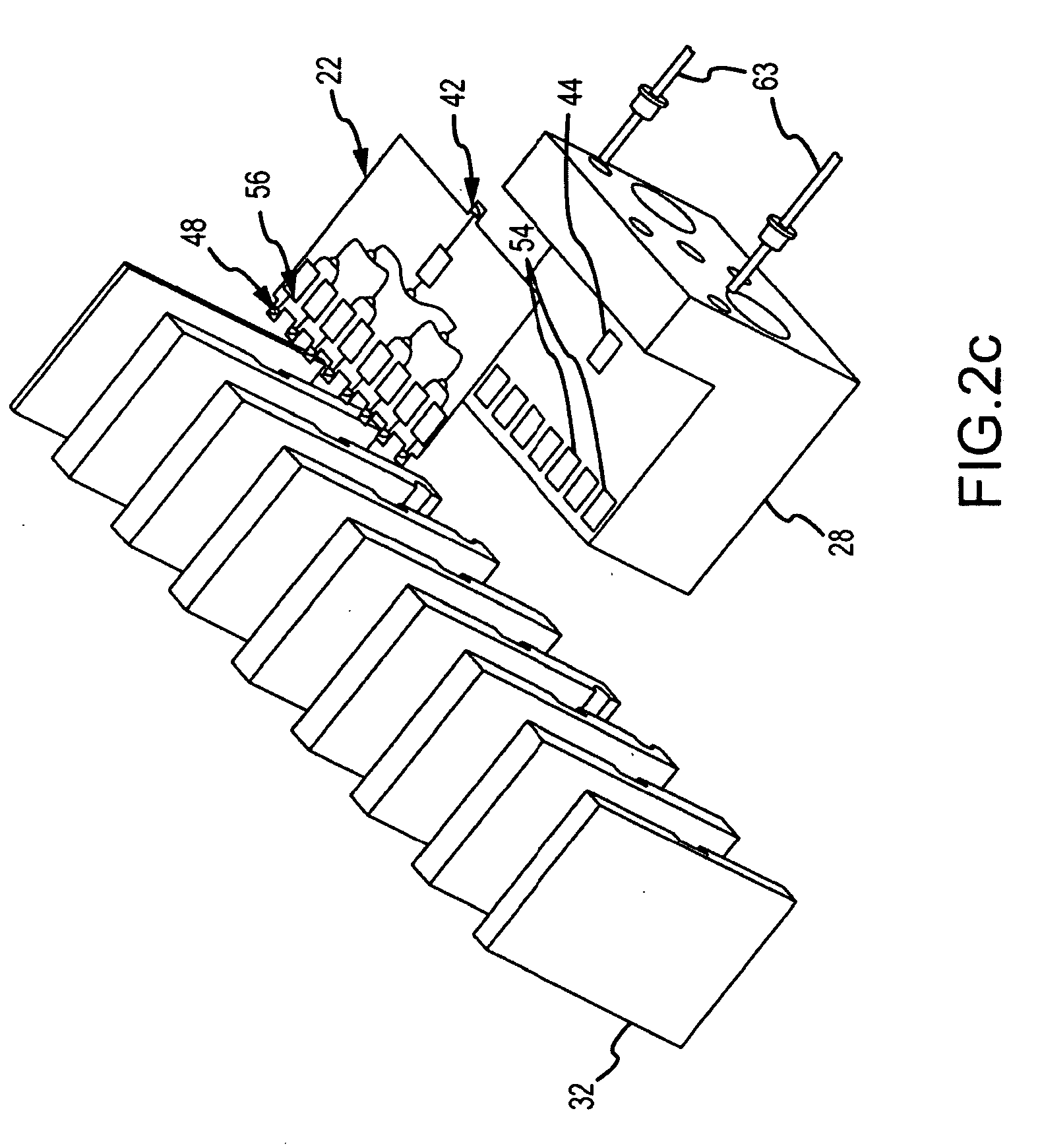Modular solid-state millimeter wave (MMW) RF power source
a technology of solid-state millimeter wave and power source, which is applied in the direction of modular arrays, amplifiers with semiconductor devices/discharge tubes, and amplifiers with semiconductor devices. it can solve the problems of reducing the power output of each semiconductor device, requiring high voltage electrical power, and requiring high voltage, so as to reduce the number of radiating elements, reduce the number of chips, and simplify the operation. effect of circuit device functionality
- Summary
- Abstract
- Description
- Claims
- Application Information
AI Technical Summary
Benefits of technology
Problems solved by technology
Method used
Image
Examples
Embodiment Construction
[0022]As shown in FIG. 1, the modular solid-state MMW power source of the present invention is a type of lens array amplifier. In general, a lens array amplifier 10 receives a spatially fed RF beam 12, divides the beam into channels and amplifies each channel using a solid-state amplifier chip to feed an array of radiating elements that spatially combine the amplified RF beams into a radiated RF beam 14. The array topology allows for the use of multiple amplifier chips, which together can provide the desired output power. Compared to the reflective topology, the lens array reduces chip material, hence reduces cost and the array of radiating elements can be more tightly spaced. Previous topologies of the lens array amplifier co-locate each amplifier chip with a radiating element. As a result, the number of amplifier chips is dictated by the size of the radiating array. Furthermore, the amplifier chips are packed in a dense array near the radiating face. These topologies are configure...
PUM
 Login to View More
Login to View More Abstract
Description
Claims
Application Information
 Login to View More
Login to View More - R&D
- Intellectual Property
- Life Sciences
- Materials
- Tech Scout
- Unparalleled Data Quality
- Higher Quality Content
- 60% Fewer Hallucinations
Browse by: Latest US Patents, China's latest patents, Technical Efficacy Thesaurus, Application Domain, Technology Topic, Popular Technical Reports.
© 2025 PatSnap. All rights reserved.Legal|Privacy policy|Modern Slavery Act Transparency Statement|Sitemap|About US| Contact US: help@patsnap.com



